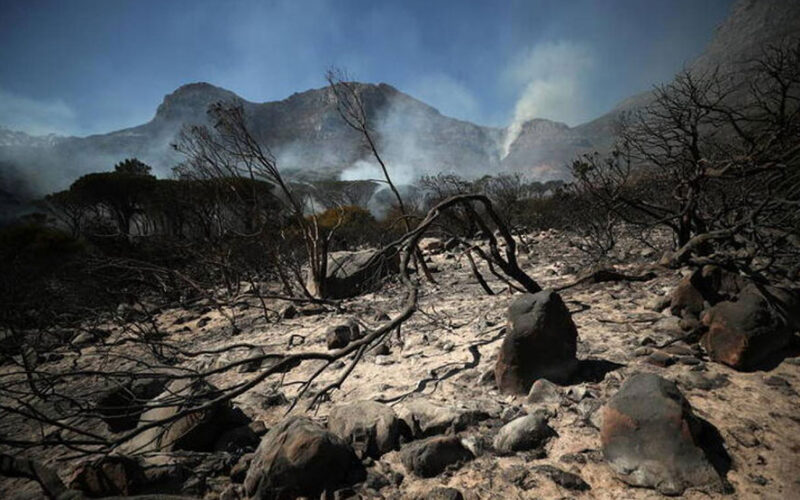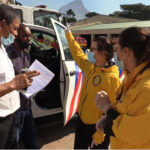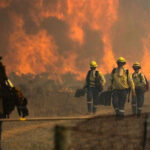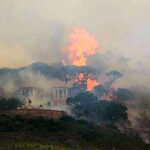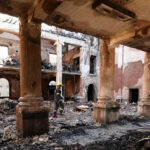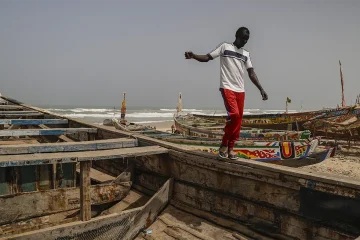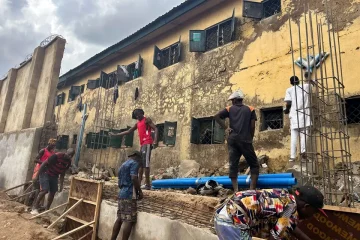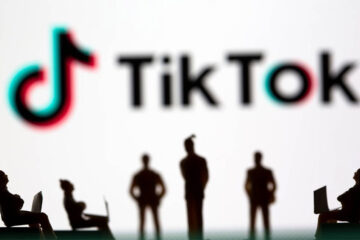KIM HARRISBERG
WHEN South African tech entrepreneur Lisa Adams passed hundreds of students stranded on the roadside with suitcases after fire tore through their campus in Cape Town this week, she raced home to her laptop to help.
Within hours, she had compiled a Google Maps list containing the names of the dozens of hotels, restaurants, counselling services and places of worship that had opened their doors to the 4,000 students affected by the wildfire.
“I had to act fast and use low-tech for high impact with the skills I have because it was getting dark and I wanted students to be able to navigate where to find help,” said Adams, adding that her tweet about the list had been seen about 190,000 times.
The list uses an interactive Google Map that pins the places offering support – making it easier for students to find them, as well as detailing their opening hours and contact information.
In addition to the list built by Adams, the University of Cape Town posted pleas for help on social media and its website, and used a Google Form to allocate students to hotels that had offered rooms to people evacuated from campus accommodation.
Adams, 31, was one of hundreds who came forward to aid students, said the university, which eventually had to turn away volunteers who arrived in person to help due to COVID-19 rules.
“It was a humbling experience,” said university spokesman Elijah Moholola, adding that an emergency fund had been set up online to help repair the “unprecedented” damage at the university and support its students.
Tens of thousands of rare African books and films were turned to ash when the blaze devastated the university’s Jagger Library on Sunday.
“What was amazing to me was that librarians created a Google Doc requesting people to upload copies of materials they had used in the library to create a digital repository,” said head librarian Ujala Satgoor.
Uploads have poured in from around the world, she said.
‘IMPACT FROM THE COUCH’
Similar online crowdfunding to accommodate and feed homeless people in Austin, Texas after a deadly storm earlier this year raised more than $235,000 in the first week alone.
“This is why tech is so powerful, you can make an impact from your couch,” said Adams, founder of Citizen Code, an organisation that uses technology to drive social impact.
Online assistance, said Moholola, is particularly useful when living through a pandemic and crowds need to be kept small.
The fire also came as Muslim students mark the holy month of Ramadan, leaving them nowhere to go for the iftar evening meal that breaks the day’s fasting.
“There was a massive reach out from the Muslim community for iftar welcoming Muslim and non-Muslim students into mosques and homes,” said Aslam Bezuidenhout, a university student and student council leader.
Many of these places were plotted on the Google map, Adams said, encouraging other businesses to offer further support.
“One bakery was only able to offer cake, so that’s what they did,” Bezuidenhout said. “The responses from everyone made me feel like humanity can come together in times of crisis.”

